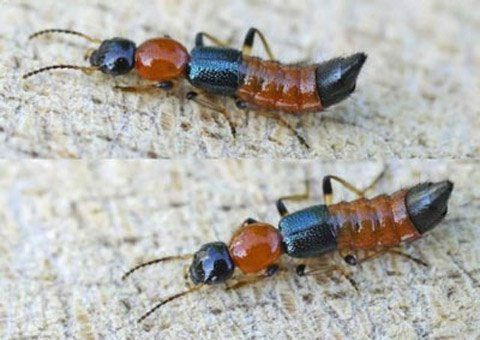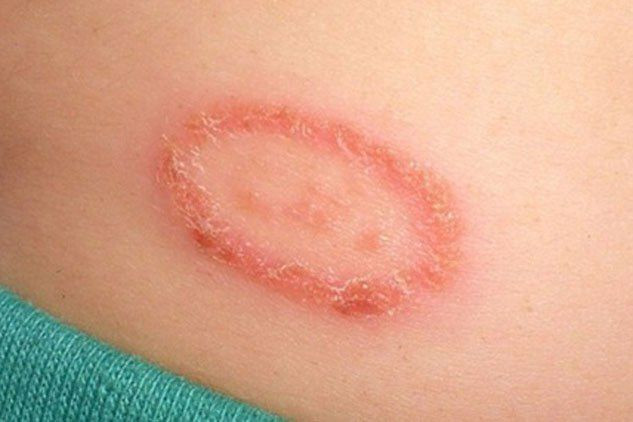Experience in preventing and treating ant bites
People in many regions across the country have been very confused recently because of the large number of ants appearing and biting people. Therefore, everyone needs to know how to prevent them.
How to prevent and treat ant bites
The three-compartment ant has the scientific name Paederus fuscipes Curtis, belonging to the Staphilinidae family (penguins), Coleoptera order. This insect has a slender, long body like a grain of rice (1-1.2cm long, 2-3mm wide), with many different colors, looking like an ant. Responding to VTC, Dr. Nguyen Xuan Quang, head of the Department of Entomology, Quy Nhon Institute of Malaria - Parasitology - Entomology, said that on the body of the three-compartment ant there is a toxin called Pederin (C24H43O9N), which is 12-15 times more toxic than cobra venom, but with a small amount of contact and only on the skin, it is not enough to kill people like snake venom. Pederin is present in the animal's blood. When the animal has dried up and been left for 8 years, the toxicity still exists.
 |
| Ants three compartments |
Dr. Nguyen Van Huynh (Can Tho University) said that females have pederin toxins in a pair of glands at the end of their abdomens, which are used to protect their eggs from being attacked by other natural enemies. Therefore, if the animal is rubbed or touched hard, the toxins can be secreted and stick to human skin, causing a burning sensation and pain.
This species appears at the beginning of the rainy season when humidity is high, especially after the first heavy rains of the season. They often live in rice fields, eat brown planthoppers and love light so they often enter the lights with brown planthoppers in places surrounded by many rice fields.
The poison of the ant when in contact with the skin causes skin burns, dermatitis, and burning sensations like being splashed with acid. Many people do not know that when they kill ants with their hands, they accidentally use that hand to touch other areas of the skin, causing damage to these areas that were not bitten by ants.
Lesions caused by the three-cavity ant are often in the form of red rash, blisters, pustules, and mouth-shaped ulcers, so they are called "kissing lesions" (kissing lesson), a specific sign only found in contact dermatitis caused by insects.
 |
| Contact dermatitis caused by exposure to the poison of the three-cavity ant (Illustration) |
How to treat ant bites at home
When exposed to the poison of the ant, the exposed skin area may develop a red rash and itch. Immediately use saline to gently wash away the poison on the skin.
Then use lake water to apply on the damaged skin area to cool the skin and avoid blistering.
When the skin has blisters like burns, continue using the lotion to clean and soothe the skin.
If pus appears in the injured area, apply methylene blue solution to the wound to disinfect and prevent infection.
When the wound is dry and no longer oozing, use antibiotic and bactericidal ointments with mild to moderate corticosteroids (eg fucidin-H, fucicort) to help the wound heal quickly.
If the injury is severe, a doctor must prescribe oral medication along with topical application to prevent the risk of systemic allergy or severe secondary infection.
How to prevent ant bites
The three-cavity ant is not an insect that actively bites people and is not a disease-carrying insect, so it is not actually as hateful as people think.
Furthermore, the black ants are beneficial insects and are still considered friends of farmers. Therefore, we should not try to destroy the black ants but instead find ways to drive them out of our living environment.
Ways to prevent ants should be done:
- Close the door so ants can't get into the house.
- Drop the curtains to block light from leaking out and attracting ants.
- Install insect screens in window and vent areas.
- Do not turn on neon lights at night and do not sit near light sources such as light bulbs.
- If possible, turn on the balcony lights to attract the ants outside so they don't come into the house.
- When in contact with ants, wear gloves or use soft paper to line your hands. Avoid direct contact.
According to khoahoc.tv
